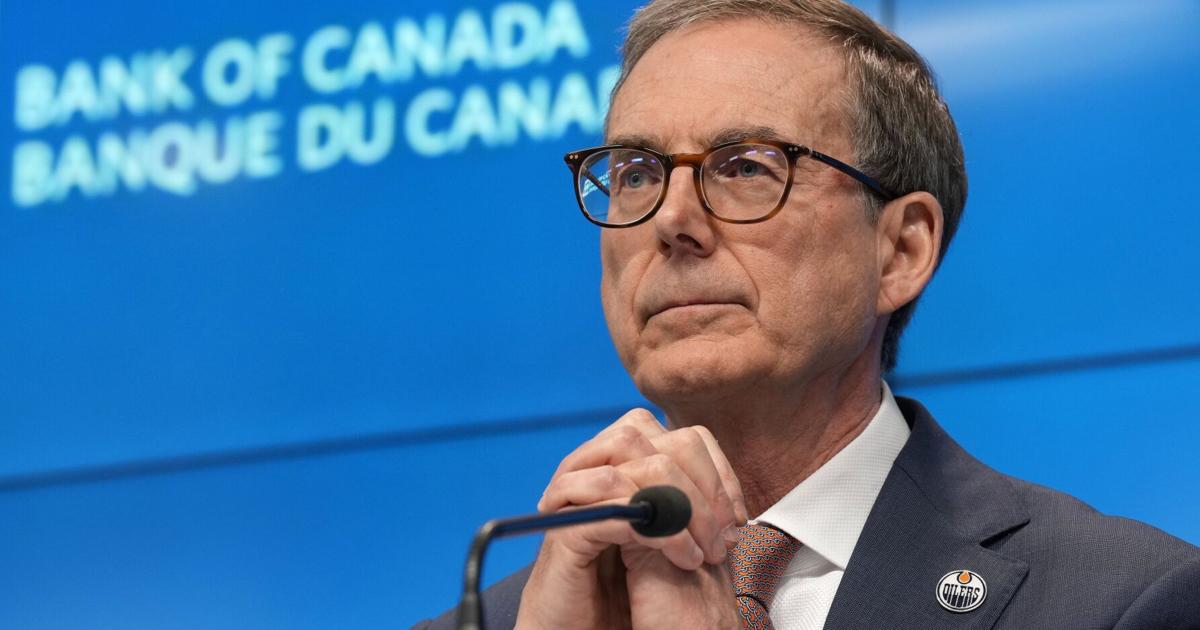Despite inflation ticking up last month, economists and markets are expecting the Bank of Canada to give more support to the economy by lowering the policy interest rate by 25 basis points next Wednesday.
That’s because, according to experts surveyed by the Star, the unemployment rate remains too high for comfort, while the central bank’s latest Business Outlook Survey showed companies continue to hold back spending amid tariffs and economic uncertainty.
The Canadian automotive industry and other tariff-sensitive sectors have been hit hardest by the trade war, with Stellantis recently announcing that it is moving 3,000 auto jobs from Brampton to the U.S.
And, on Thursday evening, U.S. President Donald Trump said he would cancel trade talks with Canada entirely over an Ontario TV ad attacking tariffs — casting further doubt on the two countries’ future economic relationship.
“It’s hard to come up with a very bullish case for the Canadian economy in the near term,” said Taylor Schleich, rates strategist at National Bank. “Over the last few months, inflation anxiety is down a little bit and economic anxiety is maybe up a little bit.”
As of Friday morning, money markets were predicting an 82 per cent chance of a 25-basis-point cut, according to data supplied by the London Stock Exchange Group.
If the markets are right, that would bring the policy rate to 2.25 per cent from the current 2.5 per cent.
In September, the central bank lowered interest rates for the first time since March, with governor Tiff Macklem warning that slow economic growth in Canada would “not feel good.”
“We think it’s unlikely the Bank of Canada expected the one 25-basis-point cut in September … would be enough to make a significant difference in the economy,” RBC economists wrote in a note to clients in support of another cut on Wednesday.
The rate announcement will come just days before finance minister François-Philippe Champagne tables the federal budget on Nov. 4. The feds are expected to deliver a significant amount of fiscal stimulus to the economy, which could trigger inflation.
Last month, inflation unexpectedly jumped from 1.9 per cent to 2.4 per cent.
TD chief economist Beata Caranci said there is a possibility the central bank will hold interest rates and take a wait-and-see approach ahead of the budget — though the probability of that happening is low, she added.
“The job market is, I think, doing a little better than we had expected, but it’s definitely not stable or strong,” she told the Star. “We think that we could still see another 40,000 job losses this year.”
In September, the jobless rate was unchanged at 7.1 per cent, while the economy gained 60,000 jobs.
Desjardins economist Royce Mendes, who is expecting the Bank of Canada to cut by 25 basis points on Wednesday, said he will be watching the tone of the bank’s communications closely.
“We have another rate cut penciled in in December…it could be December, it could be January,” he said.
“We think that the Bank of Canada will likely need to do a little bit more before central bankers can determine that their job is done.”



